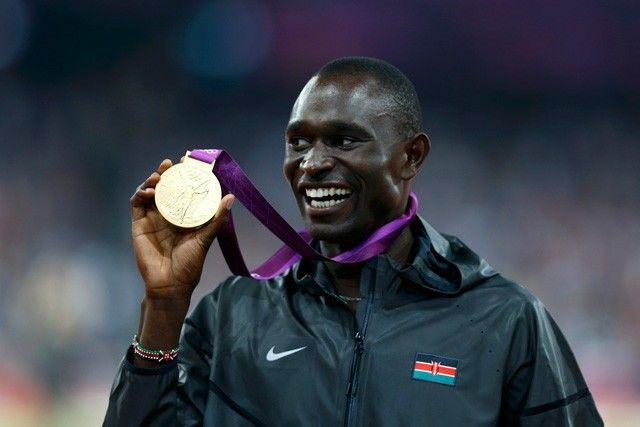David Rudisha, Latest In A Long Line Of Superb Kenyan Runners
ANALYSIS

David Rudisha, who established a new world record for the 800 meter run in the London Summer Olympics, is but the latest in a long line of extraordinary athletes hailing from the East African nation of Kenya.
Rudisha’s run, timed at an amazing 1 minute and 40.91 seconds, was described by Lord Sebastian Coe as “as one of the greatest Olympic victories” in history. In fact, Rudisha beat his own previous best (1 minute and 41.01 seconds), which itself replaced the 1 minute and 41.11 second record held by Wilson Kipketer.
Rudisha and Kipketer are both Kenyans. Indeed, Kenya (a nation of just 41 million) has produced more great runners (short- and long-distance) than just about any other nation on Earth.
Rudisha’s fellow Kenyans also hold the men’s world record for the 1,000 meter race (Noah Ngeny) and 3,000 meter (Daniel Komen).
Kenyans also excel in the long-haul competitions.
Consider the New York City Marathon. Since 1987, 10 winners in the men’s division have been Kenyan. On the women’s side, since 1994, six have hailed from Kenya.
In the Boston Marathon, Kenyan domination is even more pronounced. Since 1988, Kenyans finished in first place in the men’s division an astounding 20 times, including 10 consecutive years from 1991 to 2000.
On the ladies’ side in Boston, Kenyan women have won the race nine times since 2000.
Kenyans, both men and women, have also dominated the London Marathon since the early 1990s.
Why such overwhelming excellence in racing?
Max Fish, an associate editor at the Atlantic, noted that it is not just Kenyans who dominate in running, but a particular tribe called the Kalenjin that produces most champion racers. (There are less than 5 million of this tribe on the planet).
Theories have abounded about why Kalenjin (and Kenyans as a whole) are such superb athletes.
“Two separate, European-led studies in a small region in western Kenya, which produces most of the race-winners, found that young men there could, with only a few months training, reliably outperform some of the West's best professional runners,” Fish wrote.
“In other words, they appeared to have a physical advantage that is common to their community, making it probably genetic. The studies found significant differences in body mass index and bone structure between the Western pros and the Kenyan amateurs who had bested them. The studied Kenyans had less mass for their height, longer legs, shorter torsos and more slender limbs.”
Fisher noted that in 1990, the Copenhagen Muscle Research Center estimated that the average Kalenjin could outrun 90 percent of the global population. But this is not a conclusive scientific fact -- it may be a combination of genes, diet, climate and high elevation. No one really knows for certain.
Moreover, it’s not clear if Kenya can continue to produce such outstanding sleek athletes -- as with many counties with rising incomes, obesity is becoming a problem.
Kenyan media reported as long as two years ago that nearly half of Kenya’s women are now either overweight or obese, attributing it largely to the habit of eating fatty junk snack foods and moving away from traditional diets, particularly in the big cities.
Obesity is also rising among Kenyan youth -- of both genders.
According to Dr. Vincent Onywera, a lecturer at Kenyatta University, 16.7 percent of girls and 6.8 per cent of boys in urban settings are already overweight -- and these figures are likely to keep climbing as Kenya modernizes.
© Copyright IBTimes 2024. All rights reserved.





















